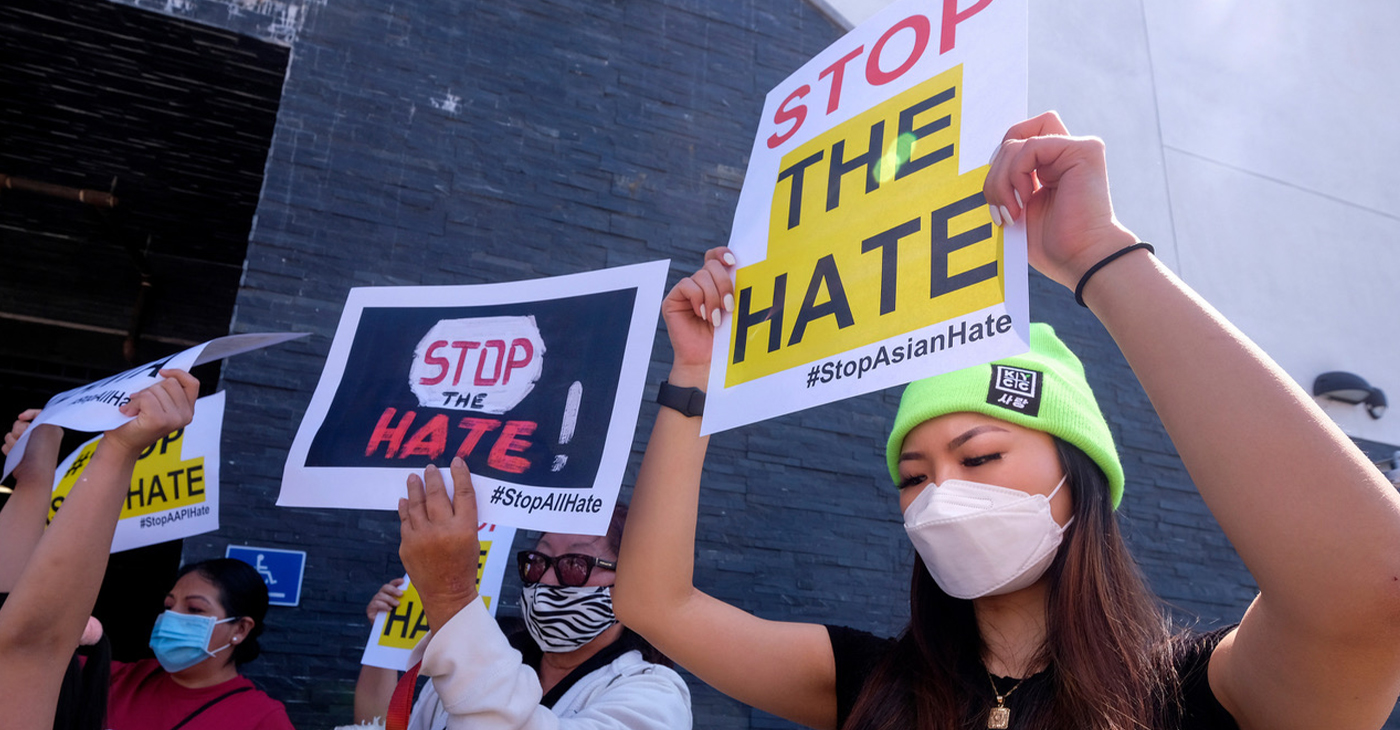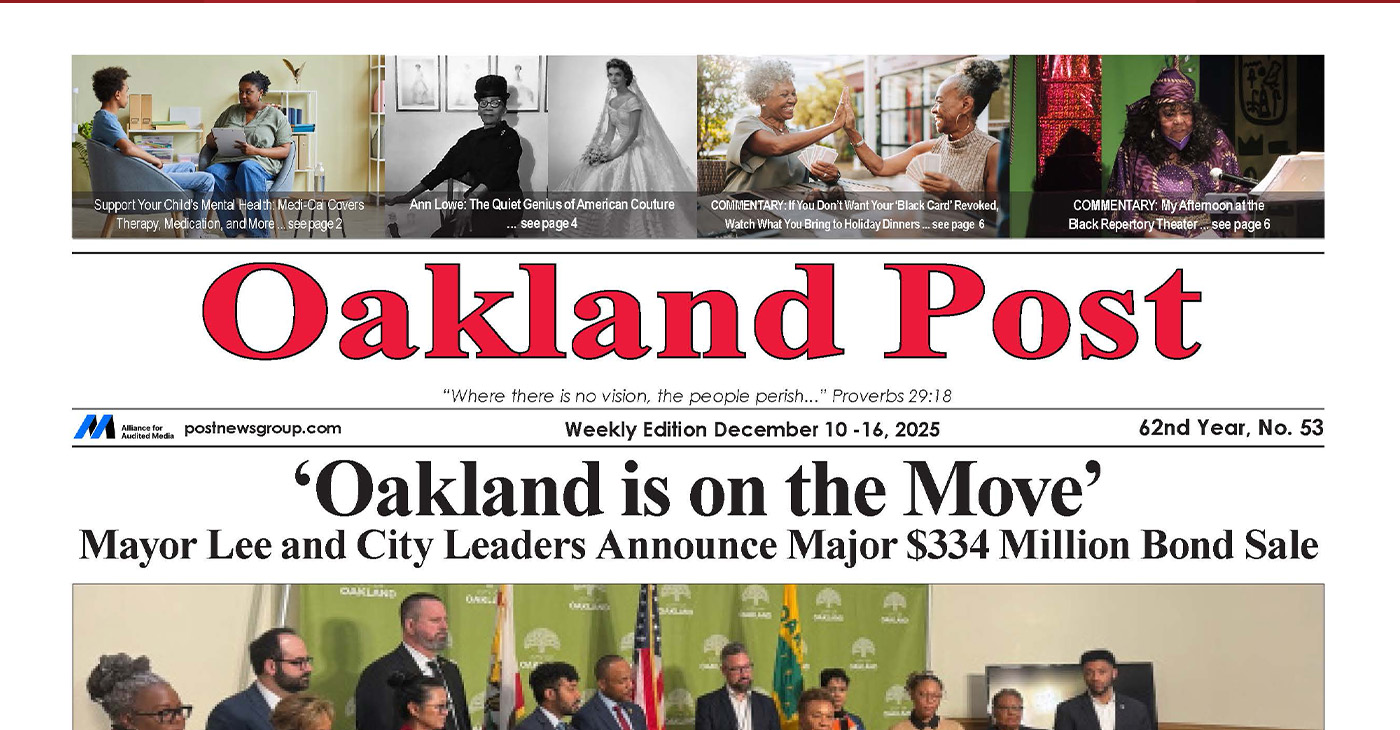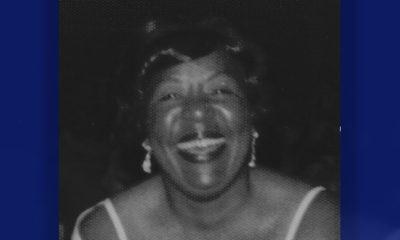California Black Media
L.A. Pilot Program Addressing Asian American Hate Could Be California Model
Californians who are Asian American or Pacific Islanders (AAPI) were the targets of an escalated number of hate crimes and hate incidents during the COVID-19 pandemic. Many AAPI people, particularly the elderly, reported being too scared to leave their homes. Others experienced firsthand hateful incidents stemming from deep-rooted prejudices and stereotypes — such as verbal or physical assaults in public.

By McKenzie Jackson, California Black Media
Californians who are Asian American or Pacific Islanders (AAPI) were the targets of an escalated number of hate crimes and hate incidents during the COVID-19 pandemic.
Many AAPI people, particularly the elderly, reported being too scared to leave their homes. Others experienced firsthand hateful incidents stemming from deep-rooted prejudices and stereotypes — such as verbal or physical assaults in public. Yet, too many of them were hesitant to voice their emotions, according to Yu Wang, an associate marriage and family therapist at the Asian Pacific Counseling and Treatment Center in Los Angeles.
“A space for healing is critically needed,” Wang said, also noting that some Asian cultures don’t put a heavy emphasis on sharing feelings and vulnerabilities. “It makes it difficult to talk about experiences related to racism. Also, many of us lack to the language to express emotions, which exacerbates feelings of isolation and fear.”
The Asian/Pacific Islanders (AAPI) Equity Alliance in collaboration with other Asian American community groups recently launched the Healing Our People through Engagement (HOPE) pilot program in Los Angeles County geared at healing racial trauma experienced by Asian American community members by providing healing spaces and reducing isolation. Based on the successes of the initiative, supporters and organizers believe the “culturally centered” program could become a model for other cities around the state.
Ethnic Media Services hosted an hourlong Zoom press conference on the last day of May, which was AAPI Heritage Month, to allow HOPE program facilitators and allies the opportunity to provide details of the initiative to the media.
HOPE is a healing space for five distinct Asian American communities — Cambodian, Chinese, Filipino, Japanese, and Korean — created to make sense of their experiences with racism and recent surges in hate crimes. The psychology of the program is radical healing, a framework that has aided Black people in dealing with years of prejudice-caused trauma. HOPE is funded by a grant from the California Department of Social Services.
More than 11,000 stories of hate have been reported to the California-based online resource, Stop AAPI Hate, since 2020.
AAPI Managing Director of Programs Michelle Sewrathan Wong called HOPE vital and said Asian Americans endured episodes of brutality on a scale not seen in generations.
“They were scapegoated by politicians for transmission of COVID-19, targeted for violent physical attacks, made to feel unsafe and unwelcome in their own communities and bullied and ridiculed by neighbors and strangers,” she stated.
HOPE opened healing spaces in Los Angeles County that offer six two-hour sessions conducted in groups by facilitators, who are staff from partner community organizations.
DePaul University Associate Professor of Psychology Dr. Anne Saw said the radical healing framework promotes healing over coping.
“Healing may be lifelong because racism is ongoing, yet a program like ours reminds people of the cultural, community, family, and individual strengths they have to resist racism,” Saw said. We believe that healing in a group can be more powerful than an individual engaging in healing on their own because of the support they receive.”
This resource is supported in whole or in part by funding provided by the State of California, administered by the California State Library in partnership with the California Department of Social Services and the California Commission on Asian and Pacific Islander American Affairs as part of the Stop the Hate program. To report a hate incident or hate crime and get support, go to CA vs Hate.
Activism
2025 in Review: Seven Questions for Black Women’s Think Tank Founder Kellie Todd Griffin
As the president and CEO of the California Black Women’s Collective Empowerment Institute, Griffin is on a mission to shift the narrative and outcomes for Black women and girls. She founded the nation’s first Black Women’s Think Tank, securing $5 million in state funding to fuel policy change.

By Edward Henderson
California Black Media
With more than 25 years of experience spanning public affairs, community engagement, strategy, marketing, and communications, Kellie Todd Griffin is recognized across California as a leader who mobilizes people and policy around issues that matter.
As the president and CEO of the California Black Women’s Collective Empowerment Institute, Griffin is on a mission to shift the narrative and outcomes for Black women and girls. She founded the nation’s first Black Women’s Think Tank, securing $5 million in state funding to fuel policy change.
Griffin spoke with California Black Media (CBM) about her successes and setbacks in 2025 and her hopes for 2026.
Looking back at 2025, what stands out to you as your most important achievement and why?
Our greatest achievement in this year is we got an opportunity to honor the work of 35 Black women throughout California who are trailblazing the way for the next generation of leaders.
How did your leadership, efforts and investments as president and CEO California Black Women’s Collective Empowerment Institute contribute to improving the lives of Black Californians?
We’re training the next leaders. We have been able to train 35 women over a two-year period, and we’re about to start a new cohort of another 30 women. We also have trained over 500 middle and high school girls in leadership, advocacy, and financial literacy.
What frustrated you the most over the last year?
Getting the question, “why.” Why advocate for Black women? Why invest in Black people, Black communities? It’s always constantly having to explain that, although we are aware that there are other populations that are in great need, the quality-of-life indices for Black Californians continue to decrease. Our life expectancies are decreasing. Our unhoused population is increasing. Our health outcomes remain the worst.
We’re not asking anyone to choose one group to prioritize. We are saying, though, in addition to your investments into our immigrant brothers and sisters – or our religious brothers and sisters – we are also asking you to uplift the needs of Black Californians. That way, all of us can move forward together.
What inspired you the most over the last year?
I’ve always been amazed by the joy of Black women in the midst of crisis.
That is really our secret sauce. We don’t let the current state of any issue take our joy from us. It may break us a little bit. We may get tired a little bit. But we find ways to express that – through the arts, through music, through poetry.
What is one lesson you learned in 2025 that will inform your decision-making next year?
Reset. It’s so important not to be sitting still. We have a new administration. We’re seeing data showing that Black women have the largest unemployment rate. We’ve lost so many jobs. We can have rest – we can be restful – but we have to continue the resistance.
In one word, what is the biggest challenge Black Californians faced in 2025?
Motivation.
I choose motivation because of the tiredness. What is going to motivate us to be involved in 2026?
What is the goal you want to achieve most in 2026?
I want to get Black Californians in spaces and places of power and influence – as well as opportunities to thrive economically, socially, and physically.
Activism
Oakland Post: Week of December 10 – 16, 2025
The printed Weekly Edition of the Oakland Post: Week of – December 10 – 16, 2025

To enlarge your view of this issue, use the slider, magnifying glass icon or full page icon in the lower right corner of the browser window.
Activism
Oakland Post: Week of November 26 – December 2, 2025
The printed Weekly Edition of the Oakland Post: Week of November 26 – December 2, 2025

To enlarge your view of this issue, use the slider, magnifying glass icon or full page icon in the lower right corner of the browser window.
-

 Activism4 weeks ago
Activism4 weeks agoIN MEMORIAM: William ‘Bill’ Patterson, 94
-

 Activism3 weeks ago
Activism3 weeks agoOakland Post: Week of November 19 – 25, 2025
-

 #NNPA BlackPress4 weeks ago
#NNPA BlackPress4 weeks agoBeyoncé and Jay-Z make rare public appearance with Lewis Hamilton at Las Vegas Grand Prix
-

 #NNPA BlackPress2 weeks ago
#NNPA BlackPress2 weeks agoLIHEAP Funds Released After Weeks of Delay as States and the District Rush to Protect Households from the Cold
-

 #NNPA BlackPress4 weeks ago
#NNPA BlackPress4 weeks agoLewis Hamilton set to start LAST in Saturday Night’s Las Vegas Grand Prix
-

 Alameda County2 weeks ago
Alameda County2 weeks agoSeth Curry Makes Impressive Debut with the Golden State Warriors
-

 Activism3 weeks ago
Activism3 weeks agoOakland Post: Week of November 26 – December 2, 2025
-

 #NNPA BlackPress2 weeks ago
#NNPA BlackPress2 weeks agoSeven Steps to Help Your Child Build Meaningful Connections















































